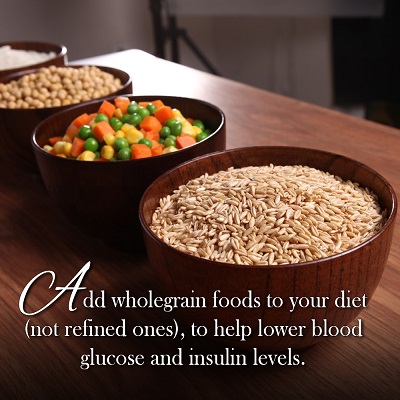 Whole foods have been proven to both prevent and reverse the effects of diabetes. Whole foods are foods that are not processed or refined, or only both as little as possible, and contain no artificial additives.
Whole foods have been proven to both prevent and reverse the effects of diabetes. Whole foods are foods that are not processed or refined, or only both as little as possible, and contain no artificial additives.
Whole foods are not only good for you but they can help to prevent diseases and give you the precious nutrients that can be missed or stripped out of processed foods.
Most processed foods contain additives or hidden extras including fats, colorings, flavors, sodium (salts) and sugars. Whole foods are mostly all natural and some examples of these include fresh fruits and vegetables, wholegrains, beans and legumes and fresh herbs.
Fortunately type 2 diabetes is not only preventable but also largely reversible. A whole foods diet and regular exercise combined can greatly impact diabetes and help to undo the condition, as well as reduce your chances if you have not yet been diagnosed.
Making the switch to wholegrain foods instead of refined grains has been connected with helping lower blood glucose and insulin levels after consumption of these foods.
Make the Switch to Wholegrain Foods
Swapping out processed foods for whole foods can be tricky at the start although with proper recipes and a little bit of preparation and cooking they prove to be more delicious than takeout or highly processed foods.
Simple swaps like exchanging a bag of potato chips/crisps for a baked potato with fresh toppings or swapping a soft serve ice cream for a homemade healthy fruit smoothie is all it takes to implement a whole foods diet.
There are vital phytochemicals that are stripped from foods when they are processed. These phytochemicals are found in foods like blueberries and are used to help break down fats and reduce cholesterol. These are important as they help to reduce the risk of obesity or weight gain which can lead to type 2 diabetes.
Good fats are still needed in your diet, including omega-3s and monounsaturated fats from plant based foods. The fats to stay away from are trans and saturated fats.
Soluble Fiber
Fiber is another dietary material that is widely used in the body and found naturally in various foods. Fiber is essential for the body as it helps to keep the digestive tract moving healthily. Another plus about fiber is that it can help to fight heart disease and diabetes.
There are 3 different types of fiber which have different functions in the body. Soluble fiber is the main fiber that is best for diabetics as it traps sugars, allowing it to enter the blood more slowly, which helps to control blood sugar levels. This fiber is abundant in many fruits, vegetables, seeds, grains and legumes which are all wholefoods.
Protein Foods
Protein rich foods contain little or no carbohydrates to affect blood sugars, and can also help to slow down the absorption of sugars in carbs consumed at the same time. Good sources are ‘no added hormone’ or organic meats and foods including chicken, eggs, and grass-fed beef.
Nutrients
Magnesium is an element that is essential for the body and found in many whole foods. Without this vital element our bodies would have no energy, our muscles would not function properly and our cholesterol levels would be out of our control. Foods rich in magnesium including almonds and spinach can also help to metabolize glucose in the body.
Another healthy nutrient for the body is chromium. Chromium is found in foods like broccoli, garlic and grass-fed beef. This nutrient helps to balance blood sugars, improve glucose tolerance and support a healthy metabolism and energy levels.
Solid food is not the only whole food that you need to worry about. Your beverages are also important. Sugar-free options, fresh fruit or vegetable juice and water are better consumed instead of soft drinks and flavored milks.
Hot drinks including tea made from fresh tea leaves can also be sweetened naturally with organic honey, although only a little as it is high in sugar. Alcohol is to be avoided as it is highly processed and not good for your health.
A wholefood diet is the perfect way to help prevent and reverse type 2 diabetes as it contains so many vital nutrients and foods containing antioxidants that are essential for a healthy lifestyle.
Talking to your dietician or healthcare provider before starting any new diets is highly recommended.






